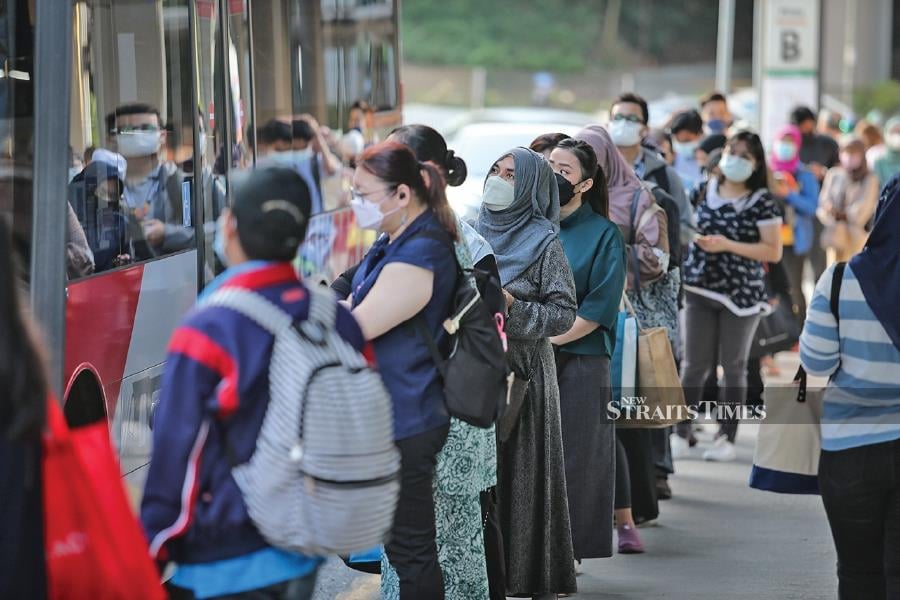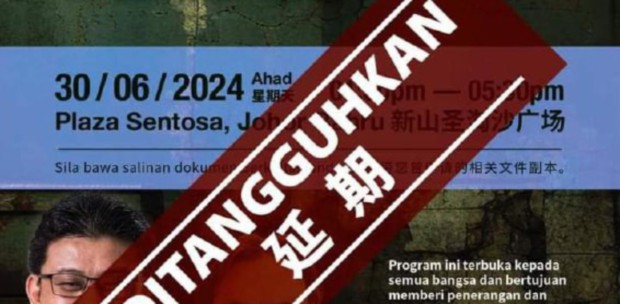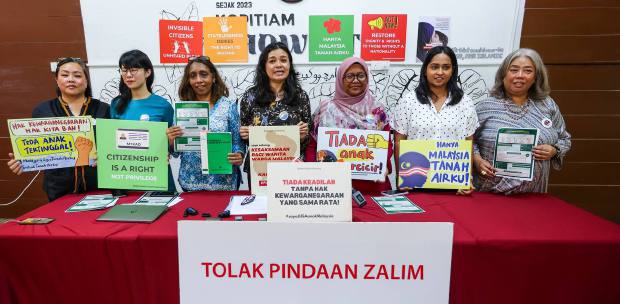KUALA LUMPUR: The citizen briefing programme organised by a Johor DAP assemblyman, which has been postponed, is not meant to replace the primary role of the National Registration Department (NRD), a non-governmental organisation (NGO) said.
The Development of Human Resources for Rural Areas (DHRRA) Malaysia, which actively champions issues related to addressing statelessness in the country, said these programmes not only bridge the gap between the community and the NRD but also ensure that families receive the assistance they need in a more accessible and understanding environment.
Its social protection director Maalini Ramalo noted that many affected families often seek help from their respective elected representatives as they feel uncomfortable or unable to visit the NRD directly due to language barriers.
"DHRRA has been actively involved in numerous events like these, providing valuable support to families. The NRD's presence, however, has always been crucial in these initiatives, as they help applicants with the necessary documentation to complete their applications successfully.
"These programmes do not replace the primary role of the NRD, which is to accept, process, and decide on citizenship applications.
"Instead, these programmes serve as support mechanisms, guiding affected individuals through the often complex state bureaucracy involved in a country's civil documentation and identification systems," she said in a written reply to the New Straits Times.
Maalini added that such briefing programmes usually provide step-by-step assistance, depending on the stage of the process, helping individuals complete the necessary documentation for submission to the NRD.
She added that there are various issues contributing to the lack of proper documents among Malaysian families.
"The highest proportion of cases DHRRA has received involves children born out of wedlock to Malaysian men and stateless or foreign women.
"Despite legitimate reasons for being unable to register the marriage, these children often endure a lengthy and burdensome process to access citizenship, sometimes spanning 20 years or more," she said.
Maalini also made some suggestions on how the government could effectively address issues faced by undocumented individuals.
"The government has already established the MEKAR Registration programme to address documentation gaps among Malaysians. However, there are still significant gaps in knowledge and awareness regarding how to access this programme.
"Authorities could enhance awareness through media engagement, using multilingual radio and television segments about birth, marriage, and citizenship applications," she said.
It was reported that a citizenship briefing organised by the Stulang state assembly office scheduled for June 30 has been postponed after sparking controversy and public criticism.
Stulang assemblyman Andrew Chen Kah Eng said the briefing was intended to address issues of the absence of birth certificates due to parental negligence, among other reasons.





